In today's increasingly globalised world, businesses are starting to realize the importance of integrating environmental, social, and governance (ESG) initiatives into their operations. These initiatives aim to promote sustainability, social responsibility, and good governance practices.
At Steelway, sustainability is not just a buzzword; it is ingrained into the very fabric of the company's operations. From the design process to manufacturing, every step is taken with the goal of minimising waste and contributing to a more environmentally friendly future.
One way Steelway achieves sustainability is through its smart purchasing practices. The company buys all its metal materials already cut to size, reducing scrap value to less than 1%. By eliminating the need for excess materials, Steelway not only reduces waste but also saves costs. This emphasis on efficient purchasing extends to packaging as well. All pallets and packaging used are both reusable and recyclable, minimising unnecessary waste.
Another key aspect of Steelways sustainability efforts is the use of hot dip galvanizing on a wide range of its products. This process involves immersing metal structures in a bath of molten zinc, creating a protective coating that increases their longevity. By utilising hot dip galvanizing, products have a longer lifespan, reducing the need for frequent replacements and ultimately minimising waste.
Transportation is another area where Steelway strives to reduce its environmental impact. The company recognises that the delivery of its services can have an impact on the environment and the health of the community. To address this, Steelway has set objectives to minimise its transportation footprint. This includes optimising operations for efficient journey planning and eliminating unnecessary engine idling. By prioritising these strategies, not only reduces carbon emissions but also contributes to cleaner air quality for the surrounding community.
Furthermore, Steelway is committed to supporting local suppliers and businesses. The company makes component purchases exclusively from approved suppliers within a 30-mile radius of its operations. By sourcing locally, reduces transportation distances but also supports the local economy and fosters stronger community ties.
In addition to its environmental initiatives, Steelway also places a strong emphasis on social responsibility. The company actively seeks to create a positive impact within Wolverhampton. Through various outreach programs and local initiatives, promoting jobs and apprenticeships to local residents within and around the city.
To ensure good governance practices, Steelway has implemented robust policies and procedures – holding BSI accreditations for its Integrated Management, Quality, Environmental, and Health & Safety Systems, affirming its commitment to excellence, sustainability, and safety in its operations.






















